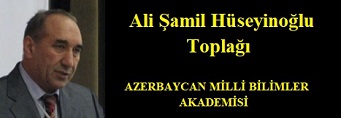Turuz masraflarını karşılaya bilmemiz için yeni yılda Turuza destek olmak için [email protected] ile irtibata geçin.
Bağışlarınızı bu E-postaya bildirin: [email protected]
Bank kart bilgileri:
6104 3373 5031 8547
Iran Millet Bank
Asyanın Yükselişi Ve Düşüşü-Fernand Grenard-1992-168s
Asyanın Yükselişi Ve Düşüşü-Fernand Grenard-1992-168s
Asiya (Arabic: آسية), also known as Asiya bint Muzahim, is revered by Muslims as one of the greatest women of all time, other three are Mary (mother of Jesus), Khadija (wife of Muhammad) and Fatimah (daughter of Muhammad). She was the wife of the Pharaoh (in Arabic pronounced "Fir'awn"), who reigned during Moses's (Arabic: Musa) time. The Qur'an chronicles her as a great person. She declared her faith in the message of God after witnessing the miracle of Moses in the Court of Pharaoh and after witnessing the death of another believing woman under torture. The Pharaoh tried to turn her away from the God of Moses and sought her mother's help. But Asiya refused to reject the God of Moses. On the Pharaoh's order, she was tortured to death. This was the reason she was famous and became one of the five greatest women of Islam.
Name Definition[edit]
In Arabic the name Asiya has many meanings. It can mean the pillar, mediator, supporter, sorrow lifter, and sorrow helper.
Tradition[edit]
Asiya was the wife of the Pharaoh. Unlike her evil husband, she was a pious and believing woman who accepted the faith that Moses and Aaron were preaching. Although she had exceeding wealth, she was not arrogant like the Pharaoh. She realized that faith in God was far more important and was thus exalted by God amongst the women of her generation.
Asiya and her maids were at the neighbouring Nile river one day. To their amazement, they found a crate floating in the river. Asiya immediately ordered the crate to be brought out on shore. Although the maids thought there was a treasure in the crate, they in fact found a baby boy inside. Asiya instantly fell in love with him and knew that this boy, Moses, was no ordinary baby. She told the Pharaoh about the baby and convinced her husband to allow the baby to live with them. The wife of Pharaoh said: "(Here is) joy of the eye, for me and for thee: slay him not. It may be that he will be use to us, or we may adopt him as a son." And they perceived not (what they were doing)! (Qur'an 28:9)
Asiya then offered Moses' mother to live in their household as Moses' wet nurse and paid her for her services, being unaware that the wet nurse was Moses' mother.[1][2] Thus, mother and son were reunited again.
The tradition holds that Asiya worshipped God in secret and praying in disguise fearing her husband. She died while being tortured by her husband, who had discovered her monotheism.[3]
Legacy[edit]
It is said that Asiya was a sincere believer and that she fully submitted herself to Allah , despite being the wife of Pharaoh. According to Hadith, she will be among the first women to enter Paradise because she accepted Moses's monotheism over Pharaoh's beliefs. The Qur'an mentions Asiya as an example to all Muslims[2][3][4]
And God sets forth, as an example to those who believe the wife of Pharaoh: Behold she said: 'O my Lord! Build for me, in nearness to Thee, a mansion in the Garden, and save me from Pharaoh and his doings, and save me from those that do wrong':
— Qur'an, chapter 66 (At-Tahrim), verse 11[5]
| Asyanın Yükselişi Ve Düşüşü-Fernand Grenard-1992-168 | |||
|---|---|---|---|
|
اوخو
ائندیر
توروز حیاتدا قالماق اوچون، یاردیم ائدین |
|||
| حجم: 18.31 MB | فورمات : Pdf | گؤرونتولندی : 1109 | خطانی بیلدیرمک |






